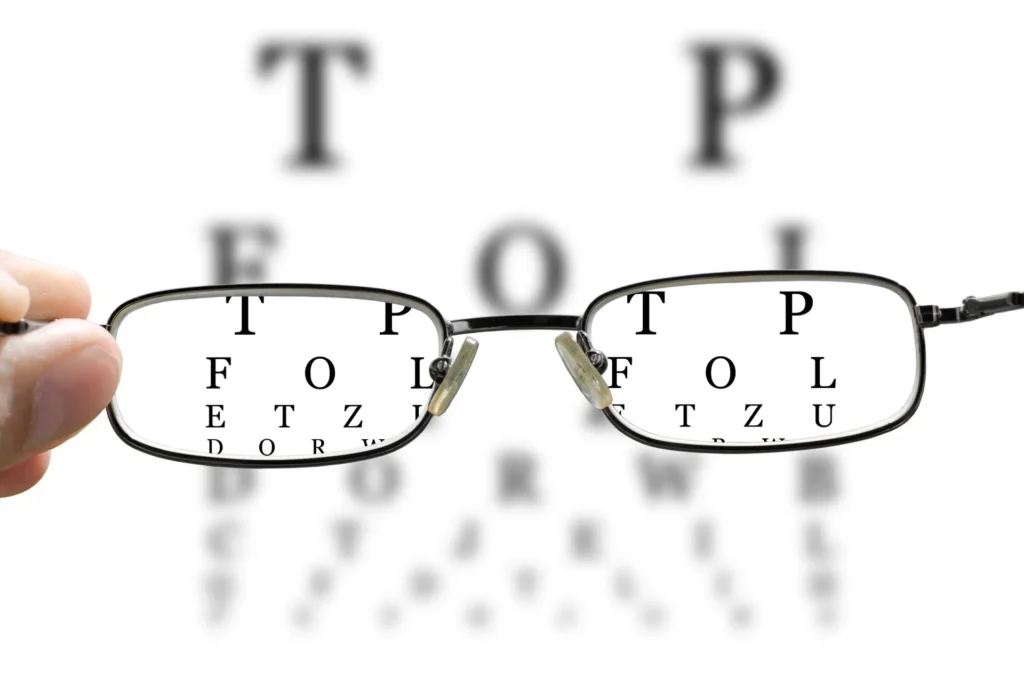Vision plays an essential role in our day-to-day life. From the cornea to the lens, iris, pupil, aqueous humor, vitreous humor, retina, and optic nerve, the different structures in the eye work in unison with the brain to produce an image from incoming light rays. As a result, we can see.
Although the eyes work in miraculous ways on a daily basis, not everyone is lucky enough to see clearly. In fact, blurry vision is something we’re all bound to experience at some point in our life – some of us might experience it temporarily and others might experience it permanently.
Blurred vision, whether temporary or permanent, can and will result in a loss of quality in one’s life. Normal, everyday activities become much more difficult (such as reading, watching TV, and the inability to make out fine details). The good news is there are ways to treat or manage it.
What Causes Blurred Vision?
When most of us hear the term blurry vision, we immediately think of two common causes – old age and refractive errors. As we age, our eyesight worsens and blurry vision is one of the first symptoms. Over 33% of people above the age of 40 will need some form of vision correction.
A refractive error occurs when the eye can’t focus light properly onto the retina. Some of the most common refractive errors include myopia (nearsightedness), hyperopia (farsightedness), astigmatism, and presbyopia. More than 150 million Americans have a refractive error.
With that said, blurred vision can be caused by a wide range of issues – both in the eyes and the rest of the body. Determining the cause of blurry vision is essential to offering the right care and treatment. Even if your vision can’t be corrected, we can help reduce the overall rate of decline.

1. Cataracts
A cataract is characterized by cloudiness of the eye and can be likened to looking out of frosted glass or a foggy window – blurred and distorted vision. By the age of 80, nearly half of all people will either have or have had cataracts. If not treated properly, cataracts can lead to blindness.
2. Glaucoma
Glaucoma is a group of eye conditions characterized by damage to the optic nerve – generally caused by an increase in intraocular pressure (eye pressure). Open-angle glaucoma usually doesn’t have early symptoms, but angle-closure glaucoma causes sudden blurred vision.
3. Retinal Detachment (Detached Retina)
As we age, the retina naturally starts to pull away from its original position in the back of the eye. As it pulls away, the retina starts to tear and as fluid makes its way through the tear, it grows even more detached. When detached, the retina won’t work properly and vision will be blurry.
4. Diabetic Retinopathy
Diabetic Retinopathy is an eye complication of diabetes that occurs when an excess of blood sugar blocks tiny blood vessels from nourishing the retina. As a result, new blood vessels are formed, but they aren’t formed properly and often leak. If not treated, symptoms grow worse.
5. Age-Related Macular Degeneration
Macular Degeneration is a group of eye conditions that are characterized by damage to the macula – the eye structure responsible for central vision. People with macular degeneration — either dry or wet macular degeneration — will struggle to make out fine details and while their peripheral vision is fine, their central vision isn’t.
6. Eye Injuries & Eye Strain
Blurry vision can also be a result of an eye injury – whether it be trauma to the eye, getting a chemical or foreign body in the eye, or something more serious. Digital eye strain and computer vision syndrome can also cause blurred vision, so make sure you’re taking breaks when staring at your laptop or phone.
7. Dry Eyes
Dry eye disease can be caused by a lack of tear production or a lack of tear quality. In addition to blurring your vision, dry eyes are often itchy, look red, and might even burn. The best way to prevent and/or treat dry eyes is with the use of artificial tears, also known as eye drops.
8. Eye Infections & Eye Inflammation
Some of the most common eye infections include conjunctivitis, keratitis, endophthalmitis, cellulitis, stye, blepharitis, and uveitis. If you’re suffering from an eye infection or your eye is inflamed, you might experience blurred vision. Don’t worry, treatment options are available.
Other Health Issues That Might Cause Blurry Vision
Like we mentioned above, eye conditions aren’t the only causes of blurry vision. There are numerous health conditions, diseases, and illnesses that could result in vision loss. Recovery generally requires treating the underlying condition, but every case is different.
Let’s take a look at some of the most common health conditions that might cause blurry vision:
- Blurry vision could be a sign of a stroke
- Blurry vision is often present in pregnant women with preeclampsia
- Migraines and other intense headaches can cause blurred vision
- Some people with psoriasis also experience blurred vision and other vision changes
- One of the early warning signs of multiple sclerosis is blurred vision
- A brain tumor that increases pressure in the skull can result in blurred vision
- As Parkinson’s disease progresses, it can affect vision and result in blurred vision
In any of these cases, your eye doctor (also known as an ophthalmologist) will work closely with your primary doctor and any other specialists you’re seeing to treat your condition. You should always follow their advice and recommendations to ensure your vision doesn’t grow any worse.
Is Your Vision Blurry? Contact Us Today!
Are you experiencing blurred vision? Are you finding it difficult to see things clearly? Do you find yourself squinting often, even to see things up close? Are you worried that your blurred vision might be a sign of something worse? Don’t worry, Milwaukee Eye Surgeons is here to help.
Sudden blurry vision can take a lot out of someone’s quality of life and if a solution isn’t found in a timely manner, the temporary loss of vision might turn permanent. That’s what makes regular eye exams so essential to long-term eye health – it makes the early detection and treatment of vision problems easier.
Whether you notice blurry vision symptoms or haven’t scheduled an eye exam with your doctor in a while, Milwaukee Eye Surgeons is ready and willing to help. We take great pride in offering world class eye care services to the Milwaukee community — even in the face of a medical emergency!



